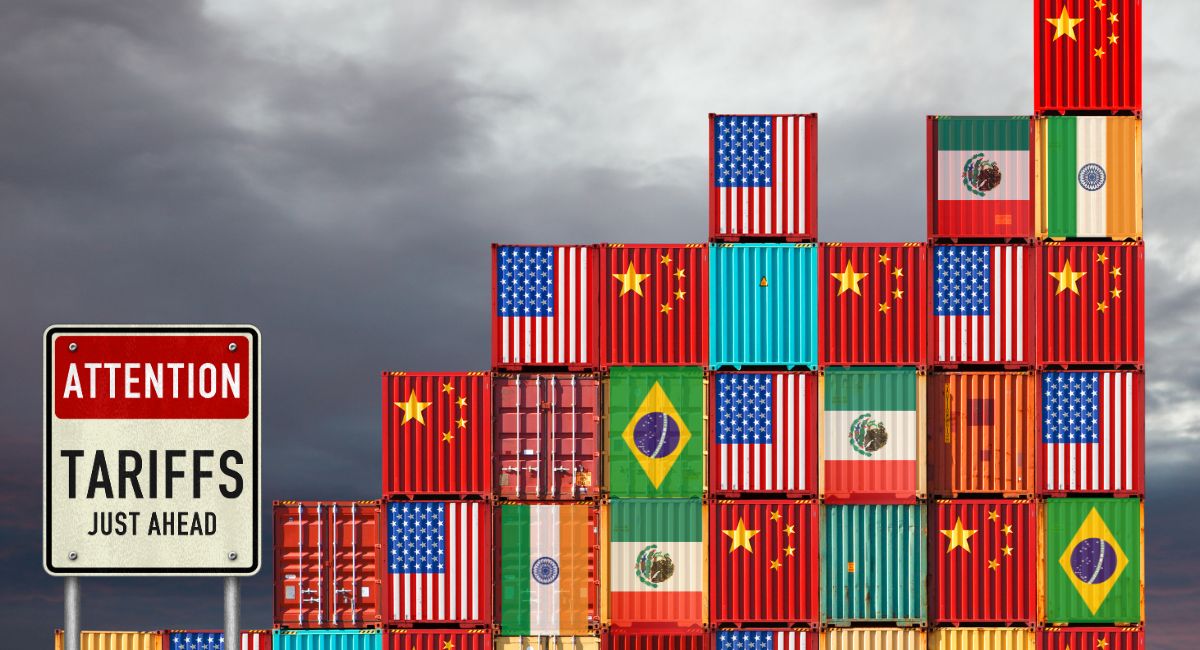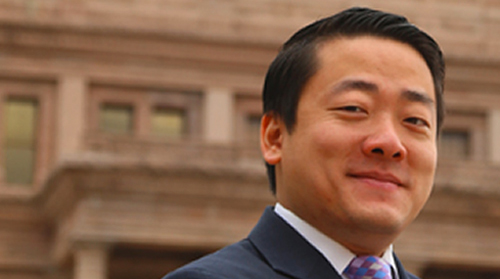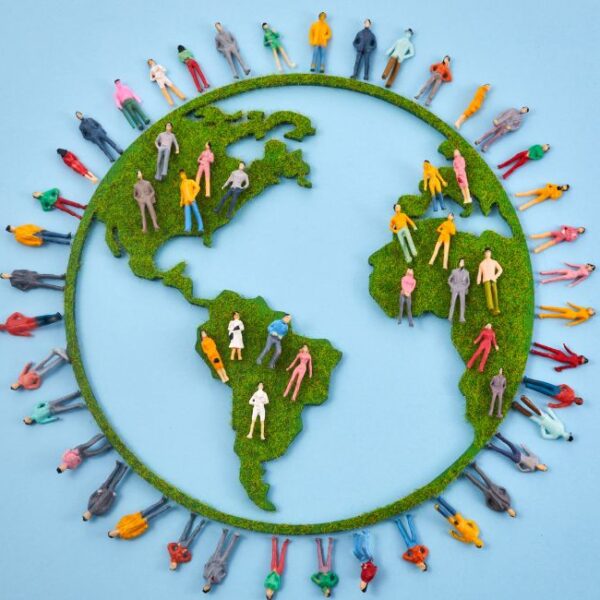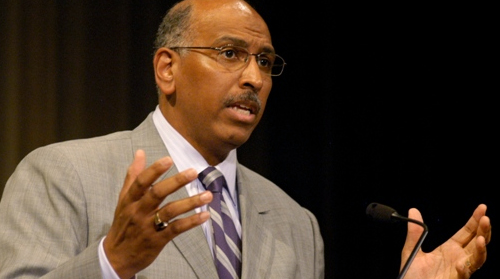At an ACOM national news briefing, economists, small business leaders, and ethnic media reporters examined Trump’s sweeping tariffs—and their outsized impact on immigrant families and Main Street businesses.
At this week’s American Community Media (ACOM) briefing, ethnic media gathered to hear directly from experts about the sweeping tariffs announced by President Donald Trump on April 2, dubbed “Liberation Day.” The tariffs, aimed at more than 90 countries, were promoted as a way to increase U.S. revenue and counter what Trump described as unfair trade practices. But the panel of economists and business leaders convened by ACOM outlined deep concerns for American consumers, workers, and especially small businesses, many of them immigrant-owned.
Dr. Neil Mahoney, Director of the Stanford Institute for Economic Policy Research, explained that tariffs are now at their highest level since the 1930s. “Tariffs are a tax on consumers,” he said, pointing to rising prices on coffee, clothing, electronics, and toys as the holiday season approaches. Businesses initially absorbed the impact, but higher costs are now being passed along to households. The labor market is also showing strain, with job growth slowing and firms holding back on hiring. “We are on a worrying path,” Mahoney said, noting that the combination of higher prices, weaker job prospects, and cuts to Medicaid and food stamps is hitting working families the hardest.
Ethnic media reporters pressed Mahoney on what this means for the working class. He pointed to rising premiums on Affordable Care Act exchanges, Medicaid cuts, and the erosion of food assistance programs. “This is a very difficult time,” he said. “Higher prices, weaker job prospects, and a shredded safety net are colliding all at once.” When asked whether tariffs might be a temporary shock, he disagreed. “Uncertainty is paralyzing the economy,” he explained. “Small businesses that don’t know their costs won’t hire. Consumers worried about layoffs won’t spend. That cycle slows everything down.”
Dr. Anil Diolalikar, founding dean emeritus of the UC Riverside School of Public Policy, turned to the international picture. China, India, and Brazil are already facing significant tariffs, with China’s potentially escalating to 145 percent later this year. He emphasized that many of these tariffs are political rather than economic. “These are punishments, used as bargaining ploys,” he said, pointing to tariffs tied to India’s purchase of Russian oil and Brazil’s prosecution of former president Jair Bolsonaro. He warned that such policies are driving BRICS nations closer together, away from the U.S., with long-term consequences for global alliances and immigrant communities in America.
Reporters pressed him on Brazil’s shifting alliances, noting President Lula’s recent meeting with China’s Xi Jinping. Diolalikar confirmed that Trump’s tariffs are encouraging these countries to deepen ties. “India, China, and Brazil are planning new trilateral talks. Tariffs are pushing them toward each other, not toward us,” he said. Asked about new tariffs on Myanmar, he was blunt: “These tariffs are being used as political tools. They are punishments for foreign policy decisions. That is not their original purpose.”
Former U.S. Small Business Administration Deputy Administrator Dilawar Saeed underscored the immediate strain on small businesses, which make up 97 percent of U.S. importers. He shared the story of a Latina grocer who received a surprise $20,000 duty bill from Customs and Border Protection. She had no way to absorb the cost and faced the prospect of laying off workers or closing her shop. “These policies are crushing immigrant dreams,” Saeed said. He also criticized new SBA rules barring applicants with non-citizen partners and the closure of SBA offices in sanctuary cities. “The very people who fuel America’s small business culture are being pushed to the margins,” he said.
Ethnic media reporters asked specifically about immigrant entrepreneurs. Saeed responded that immigrant entrepreneurship has always been disproportionately high. “It’s part of our national story,” he said. “But now, SBA loans are out of reach if you have even a small non-citizen partner. And offices in cities like Los Angeles and New York—where immigrant businesses are concentrated—have been shut down. That is devastating.”
Asked whether minority-owned and rural businesses will be hit harder, Saeed agreed. “Every shock lands hardest on underserved communities,” he said. He pointed to the pandemic, when nearly a quarter of all Black-owned businesses closed and never returned. “The same pattern is unfolding here. Minority and rural businesses, already with fewer resources, are less able to absorb these tariff costs. And instead of help, we see the federal government retreating.” He noted that local and state governments, along with nonprofits and chambers of commerce, may need to step in with mentorship, grants, and advocacy to fill the gap.
Houston entrepreneur Marcus Bowers, co-founder of She’s Happy Hair, illustrated the human impact. His company, started in 2012 selling hair extensions from parking lots and growing into a nationwide brand, depends on imports from India and China. Tariffs are driving up costs that ripple through pricing, payroll, and customer access. “We built this industry from the ground up,” Bowers said. “These policies make it harder to keep that alive.”
Bowers described how his business pioneered new sales cycles in the hair industry, from Black Friday promotions to back-to-school campaigns. His stores have become cultural hubs and gathering places in Houston and beyond. But with tariffs raising costs on imported hair, the stability of that ecosystem is threatened. “We’ve shown what immigrant ingenuity and Black entrepreneurship can create together,” he said. “Now it’s getting harder to keep that alive.”
The ACOM briefing made one truth undeniable: tariffs are not abstract economic tools. They are raising costs for consumers, destabilizing small businesses, and straining U.S. relations abroad. For immigrant entrepreneurs and their communities, the burden is immediate and heavy. Ethnic media reporters, pressing for answers, made sure those voices were heard and documented for the audiences most directly affected.
Trump may call it “Liberation Day.” But as the ethnic media’s questions revealed, liberation is not what working families and immigrant entrepreneurs are experiencing. Instead, they are bracing for survival in an economy where the costs of political bargaining are falling hardest on their shoulders.
#ImmigrantVoices #TrumpTariffs #EthnicMedia #SmallBusiness #ImmigrantEntrepreneurs #TradeWars #ACOMBriefing










